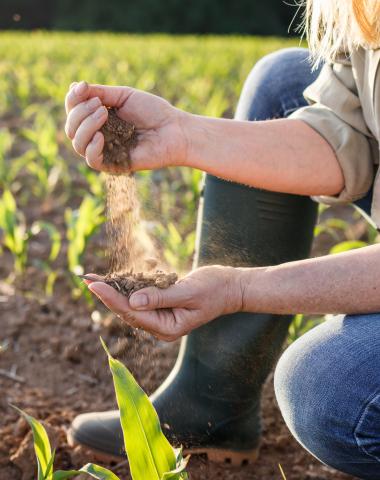30 June 2025 – Over 100 participants from all around the world gathered online for a timely webinar hosted by IFOAM – Organics International, featuring a diverse speaker lineup from FiBL (Switzerland), Ecovalia (Spain), University of California-Berkeley (US), BIO-KG Federation of Organic Development (Kyrgyzstan) and Center for Agriculture Research and Ecological Studies (Vietnam).
The discussion focused on how extreme heat and other climate-related stresses are impacting organic farming—and how organic practices can offer crucial, adaptive solutions in response to these challenges.
Key Takeaways from the Webinar:
- In Kyrgyzstan, especially in high-altitude regions, farmers are seeing earlier snowmelt, more frequent heatwaves, and shifting seasons, leading to soil overheating and crop failures.
- Instead of relying on high-tech fixes, communities are turning to farmer-led innovations: shifting planting schedules, using drought-tolerant herbs, diversifying income, and applying organic practices to stabilise yields.
- Participatory Guarantee Systems (PGS) serve as a resilience tool for community-based adaption through tracking climate impacts, collecting data from shared observations and supporting collective decision-making, learning and innovation.
- U.S. farmworkers are facing dual threats: rising pesticide exposure and increasing heat stress, both intensified by climate change.
- Pesticide use has increased with warming, which can impair the body’s ability to metabolise chemicals and increase reliance on pesticide protection equipment (PPE), raising the risk of heat-related illness.
- Organic and truly regenerative practices offer a safer, more sustainable approach, one that considers the well-being of both farmworkers and the food system.
- The Mediterranean is heating 20% faster than the global average.
- Spain is especially vulnerable, already experiencing a 1.3°C increase, with projections reaching up to 5°C by 2100.
- The Mediterranean organic approach includes:
- Crop diversity management (new planting zones, heirloom varieties, seed resilience)
- Organic matter strategies (livestock integration, low tillage, composting, and pruning/crop residue practices)
- In Switzerland, extreme weather is disrupting both livestock and crop systems.
- Highland areas face livestock feed shortages due to reduced grass growth.
- Lowland regions report yield declines from sunburn and heat stress.
- Organic soil management plays a critical role:
- For mitigation – by reducing emissions linked to soil.
- For adaptation – by buffering the impacts of extreme weather on crops.
- Vietnam has seen a drastic shortening of winter in the past 10–15 years.
- Crops like soybeans and cucumbers are increasingly unsuited to current seasonal patterns.
- Research is focused on integrated, heat-resilient systems,such as combining fish and vegetable production in urban settings, offering more controlled, sustainable alternatives.
Webinar: How Can Organic Farming Thrive in Extreme Heat?
Looking Ahead: Innovation & Resilience in the Face of Heat
Despite the growing threats posed by climate change, the global organic movement is responding with innovation, resilience, and collaboration. From community-led adaptation to soil-centred practices, organic farming is offering hopeful, practical paths forward—aimed at building a cooler, more sustainable future for all.
“We have heard why organic agriculture can play a leading role in a warming world. What we’ve been talking today aren’t nice ideas. They are practical and central actions.”
World Board, IFOAM – Organic International
“The solution is already in the field. Let’s cultivate it together.”
BIO-KG Federation of Organic Development
The views expressed in this webinar are those of the speakers and do not necessarily reflect the official position of IFOAM – Organics International.
